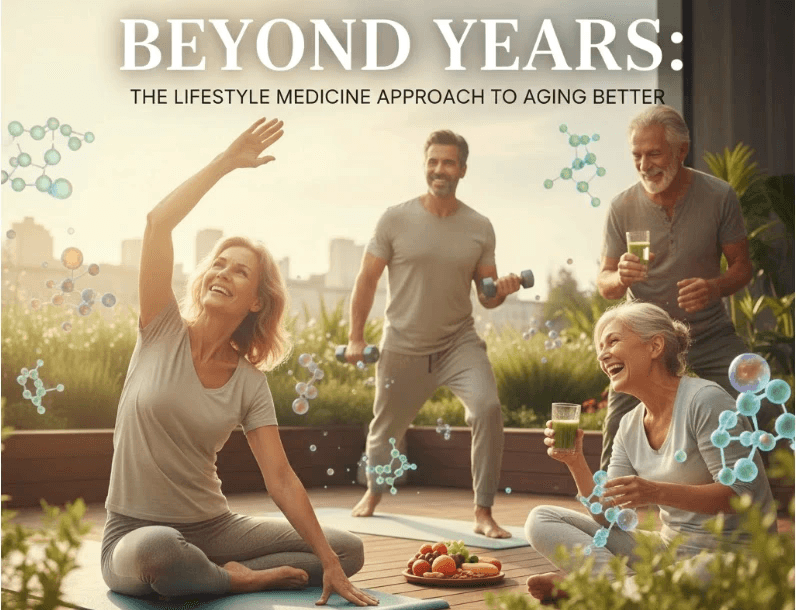Healthy Relationship: The single most important predictor of human happiness and longevity.
At iLIVE Health Solutions, we recognize social connection as a fundamental component of optimal health and well-being. Scientific evidence shows that healthy social connection is the most important predictor of happiness and long life.
Healthy Relationship: The single most important predictor of human happiness and longevity.



Date
Jan 22, 2025
Jan 22, 2025
Jan 22, 2025
Author
Olabisi Adenuga
Read time
5 Mins
The Science Behind Social Connection
Extensive research demonstrates the profound impact of social connections on physical and mental health:
Longevity: Individuals with strong social relationships had a 50% increased likelihood of survival compared to those with weak social ties according to a meta-analysis of 148 studies. This effect is comparable to quitting smoking and exceeds many well-known risk factors for mortality.
Cardiovascular Health: Strong social connections are associated with a 29% reduction in
the risk of coronary heart disease and a 32% reduction in the risk of stroke.
Mental Health: Social support is linked to lower rates of depression and anxiety. One
study found that individuals with strong social connections had a 50% reduced risk of
developing depression.
Cognitive Function: Engaging in social activities is associated with a 39% lower risk of
cognitive decline in older adults.
Immune Function: People with diverse social networks have been shown to have
stronger immune responses to vaccines and better resistance to infectious diseases.
Diabetes Management: A study showed that patients in a socially connected
intervention group had more significant decreases in HbA1c and blood glucose after 6
months compared to a control group.
Strategies to Enhance Social Connection
1. Cultivate existing relationships
2. Join community groups or clubs
3. Volunteer for local causes
4. Engage in social media mindfully
5. Attend local events or workshops
Possible Ways to Form New Social Connection
Volunteer: helping others improves health, increases happiness and
allows you to meet new people
Connect with a community resource center to find local options Find online or community groups of those who share the same interests– meetup.com or Facebook groups are a great place to look
Join a religious or spiritual group:
Help at a local animal shelter or adopt a pet to connect with other animal lovers
Participate in group fitness activities
Go to local events: sports events, music performances, lectures or art displays.
Help organize community events: by joining a steering committee or board.
Attend community celebrations like parades or walks.
Take a course at your local library or community college and interact with others there.
Engage in social media mindfully: Negative impacts of social media such as anxiety and distraction by setting "no social medial" time/space, turning off notification etc.
Ask your employer for ways to increase social connections at work.
Strengthen Existing Social Connections
Take more care to quickly connect with people you see a lot during the week
When possible, stay positive while connecting with others
Share new experiences
Make and spend time with others
Be there for those who need you
Be flexible, supportive and excited about what others are doing in their lives
YOU CAN BE ALONE IN THE CROWD!
How can we help your relationship?
Call Us!
References:
Cohen S, et al. (1997). Health Psychology.
Holt-Lunstad J, et al. (2010). PLOS Medicine.
Holt-Lunstad J, et al. (2015). Perspectives on Psychological Science.
James BD, et al. (2011). Journal of the International Neuropsychological Society.
Kuiper JS, et al. (2015). Journal of Neurology, Neurosurgery & Psychiatry
Perez-Escamilla R, et al. (2015). The Diabetes Educator.
Santini ZI, et al. (2015). Journal of Affective Disorders.
Valtorta NK, et al. (2016). Heart.
The Science Behind Social Connection
Extensive research demonstrates the profound impact of social connections on physical and mental health:
Longevity: Individuals with strong social relationships had a 50% increased likelihood of survival compared to those with weak social ties according to a meta-analysis of 148 studies. This effect is comparable to quitting smoking and exceeds many well-known risk factors for mortality.
Cardiovascular Health: Strong social connections are associated with a 29% reduction in
the risk of coronary heart disease and a 32% reduction in the risk of stroke.
Mental Health: Social support is linked to lower rates of depression and anxiety. One
study found that individuals with strong social connections had a 50% reduced risk of
developing depression.
Cognitive Function: Engaging in social activities is associated with a 39% lower risk of
cognitive decline in older adults.
Immune Function: People with diverse social networks have been shown to have
stronger immune responses to vaccines and better resistance to infectious diseases.
Diabetes Management: A study showed that patients in a socially connected
intervention group had more significant decreases in HbA1c and blood glucose after 6
months compared to a control group.
Strategies to Enhance Social Connection
1. Cultivate existing relationships
2. Join community groups or clubs
3. Volunteer for local causes
4. Engage in social media mindfully
5. Attend local events or workshops
Possible Ways to Form New Social Connection
Volunteer: helping others improves health, increases happiness and
allows you to meet new people
Connect with a community resource center to find local options Find online or community groups of those who share the same interests– meetup.com or Facebook groups are a great place to look
Join a religious or spiritual group:
Help at a local animal shelter or adopt a pet to connect with other animal lovers
Participate in group fitness activities
Go to local events: sports events, music performances, lectures or art displays.
Help organize community events: by joining a steering committee or board.
Attend community celebrations like parades or walks.
Take a course at your local library or community college and interact with others there.
Engage in social media mindfully: Negative impacts of social media such as anxiety and distraction by setting "no social medial" time/space, turning off notification etc.
Ask your employer for ways to increase social connections at work.
Strengthen Existing Social Connections
Take more care to quickly connect with people you see a lot during the week
When possible, stay positive while connecting with others
Share new experiences
Make and spend time with others
Be there for those who need you
Be flexible, supportive and excited about what others are doing in their lives
YOU CAN BE ALONE IN THE CROWD!
How can we help your relationship?
Call Us!
References:
Cohen S, et al. (1997). Health Psychology.
Holt-Lunstad J, et al. (2010). PLOS Medicine.
Holt-Lunstad J, et al. (2015). Perspectives on Psychological Science.
James BD, et al. (2011). Journal of the International Neuropsychological Society.
Kuiper JS, et al. (2015). Journal of Neurology, Neurosurgery & Psychiatry
Perez-Escamilla R, et al. (2015). The Diabetes Educator.
Santini ZI, et al. (2015). Journal of Affective Disorders.
Valtorta NK, et al. (2016). Heart.
The Science Behind Social Connection
Extensive research demonstrates the profound impact of social connections on physical and mental health:
Longevity: Individuals with strong social relationships had a 50% increased likelihood of survival compared to those with weak social ties according to a meta-analysis of 148 studies. This effect is comparable to quitting smoking and exceeds many well-known risk factors for mortality.
Cardiovascular Health: Strong social connections are associated with a 29% reduction in
the risk of coronary heart disease and a 32% reduction in the risk of stroke.
Mental Health: Social support is linked to lower rates of depression and anxiety. One
study found that individuals with strong social connections had a 50% reduced risk of
developing depression.
Cognitive Function: Engaging in social activities is associated with a 39% lower risk of
cognitive decline in older adults.
Immune Function: People with diverse social networks have been shown to have
stronger immune responses to vaccines and better resistance to infectious diseases.
Diabetes Management: A study showed that patients in a socially connected
intervention group had more significant decreases in HbA1c and blood glucose after 6
months compared to a control group.
Strategies to Enhance Social Connection
1. Cultivate existing relationships
2. Join community groups or clubs
3. Volunteer for local causes
4. Engage in social media mindfully
5. Attend local events or workshops
Possible Ways to Form New Social Connection
Volunteer: helping others improves health, increases happiness and
allows you to meet new people
Connect with a community resource center to find local options Find online or community groups of those who share the same interests– meetup.com or Facebook groups are a great place to look
Join a religious or spiritual group:
Help at a local animal shelter or adopt a pet to connect with other animal lovers
Participate in group fitness activities
Go to local events: sports events, music performances, lectures or art displays.
Help organize community events: by joining a steering committee or board.
Attend community celebrations like parades or walks.
Take a course at your local library or community college and interact with others there.
Engage in social media mindfully: Negative impacts of social media such as anxiety and distraction by setting "no social medial" time/space, turning off notification etc.
Ask your employer for ways to increase social connections at work.
Strengthen Existing Social Connections
Take more care to quickly connect with people you see a lot during the week
When possible, stay positive while connecting with others
Share new experiences
Make and spend time with others
Be there for those who need you
Be flexible, supportive and excited about what others are doing in their lives
YOU CAN BE ALONE IN THE CROWD!
How can we help your relationship?
Call Us!
References:
Cohen S, et al. (1997). Health Psychology.
Holt-Lunstad J, et al. (2010). PLOS Medicine.
Holt-Lunstad J, et al. (2015). Perspectives on Psychological Science.
James BD, et al. (2011). Journal of the International Neuropsychological Society.
Kuiper JS, et al. (2015). Journal of Neurology, Neurosurgery & Psychiatry
Perez-Escamilla R, et al. (2015). The Diabetes Educator.
Santini ZI, et al. (2015). Journal of Affective Disorders.
Valtorta NK, et al. (2016). Heart.



View our other posts
Subscribe
Join our newsletter to stay up to date on features and releases.
By subscribing you agree to with our Privacy Policy and provide consent to receive updates from our company.
Subscribe
Join our newsletter to stay up to date on features and releases.
By subscribing you agree to with our Privacy Policy and provide consent to receive updates from our company.
Subscribe
Join our newsletter to stay up to date on features and releases.
By subscribing you agree to with our Privacy Policy and provide consent to receive updates from our company.


